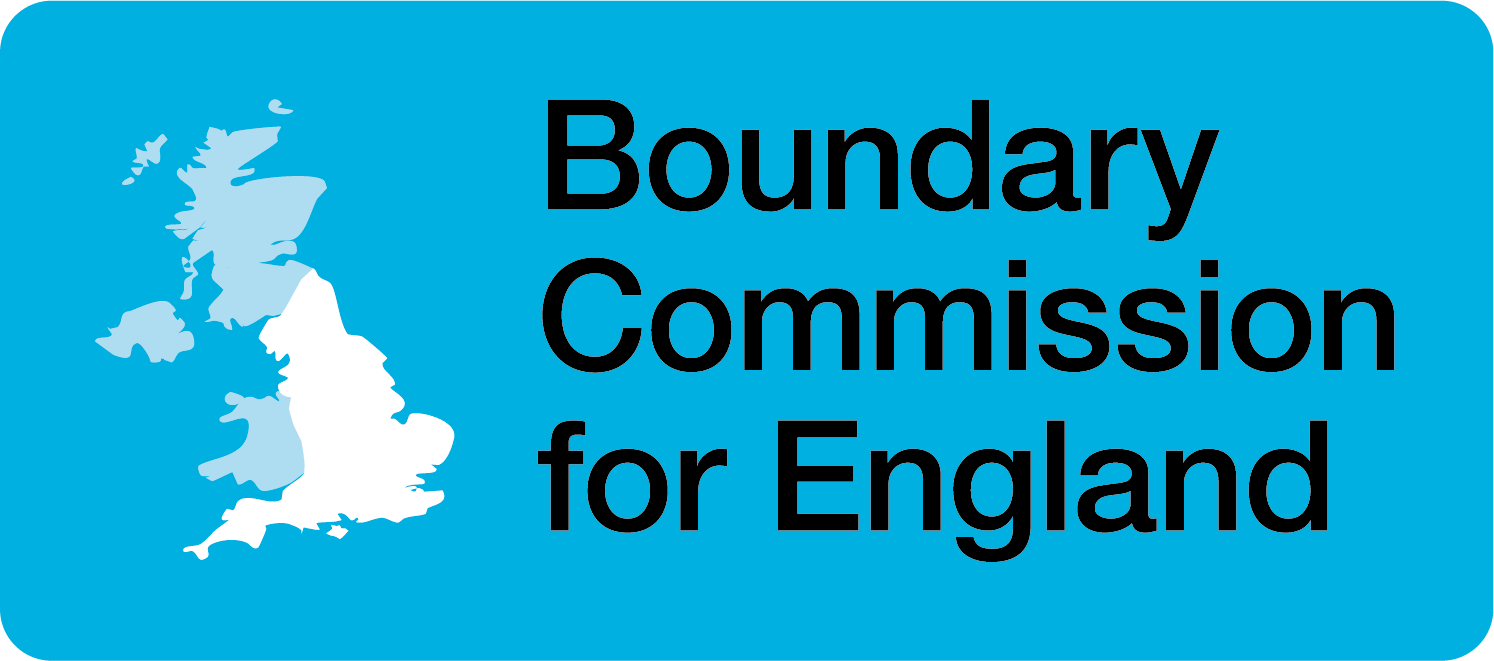Attending a public hearing
Timings
Each hearing takes place over two consecutive days. The timings for each day are as follows:
Day One: 10am to 8pm
Day Two: 9am to 5pm
At the discretion of the Chair, the hearing may close slightly earlier if we are not aware of anyone intending to speak at a later time. The chair may also adjourn for short breaks through the day.
The hearing will begin with a short introduction from the Chair, and an official from the Commission will summarise the proposals for the area where the hearing is held.
Back to topPolitical parties
The first hearing in each region is designated as the ‘lead’ hearing. On the first day of each lead hearing, the four qualifying English political parties (as defined in the Parliamentary Constituencies Act 1986, as amended) will have an extended speaking slot of 30 minutes to allow them to present their overall view for the whole region.
In some instances, a political party may decide not to attend a lead hearing.
The Commission places no more weight on comments that are submitted by political parties than on those from any other individuals or organisations.
Back to topAssistant Commissioners
All public hearings will be chaired by one of the 17 Assistant Commissioners appointed by the Commission to support and advise on our review of parliamentary constituencies in England. To learn more about our Assistant Commissioners, click here or go to the ‘About us’ section on our website.
The Chair will manage the hearing, including the time allocated to those wishing to speak, to make sure it runs on time. The purpose of the hearings is to allow people to make their representation orally during the public consultation, and it is not to enter into a debate about the initial proposals.
The Chair may ask those making a speech questions in order to clarify the points they are making. Other participants may ask to direct their own questions of clarification through the Chair, but will not be allowed to cross-examine the speaker.
Please remember that everyone should feel comfortable at public hearings and participants should not be intimidated by others, even if you disagree with the points they are making.
Our Assistant Commissioners look forward to listening to your views during the public hearings, to help get the boundary lines and constituency names we propose right for your area. The content of your representation is up to you. Some things you may wish to include in your speech are:
- Whether you agree or disagree with the initial proposals
- If you have an alternative suggestion for the boundary lines or constituency names
- Information about your local area – such as your community groups, the places of worship you attend, your libraries and schools, or even how you travel within and between communities. This all helps us to improve our initial proposals.
Accessibility
All venues for the public hearings are compliant with the Disability Discrimination Act and have step-free access. If you have any concerns or questions regarding accessibility, please get in contact. When booking a timeslot, you will be asked whether you intend to make
your oral representation in a language other than English. This will help us look into making arrangements (i.e. translation services, such as sign language interpretation) at hearings where needed.
Coronavirus
The Commission will follow Government guidance around Covid-19
(available online at gov.uk/coronavirus) as well as any restrictions set by the public hearing venues themselves. We ask you to wear a mask and practice social distancing throughout the hearing, and encourage you to take a lateral flow test prior to your arrival. Where allowed by venue restrictions, you can remove your mask while making your speech. If you have tested positive, or have any coronavirus related symptoms, please do not attend under any circumstances. We will note down the contact details of all those attending as part of the NHS Test and Trace service.
Media
We expect there to be media interest in the public hearings and members of the media may attend some dates.
If you are a member of press and wish to get in touch with the Commission to request an interview, please contact our Press Office:
Email: press@boundarycommissionengland.gov.uk
Phone: 07821 637558
Recording the hearing
An official video recording will be made of all public hearings, and placed on our YouTube channel shortly after each hearing. A transcript of each hearing will also be made, which may not be published until later in the year.
We are required by law to publish all representations, and it therefore will not be possible to stop recording during a presentation. However, please let us know as early as possible if you would like the camera pointed away from you while you speak. Participants will be asked to state their name and local area, which will be recorded in the video and transcript made of the hearing. Personal details, such as home addresses or contact details, will be redacted. An official from the Commission present at the hearing will also make a written record of speakers’ names and the place names mentioned during presentations to help with the accuracy of the transcript.
Photos may be taken at hearings for our own social media channels in order to promote the consultation. Please let us know as early as possible if you would not like to be photographed.
Our Data Protection and Privacy Policy will be available in hard copies at the public hearings, and can also be found on our website. Click here or search for ‘data protection’ on our website.
We ask members of the public not to record or photograph the hearing themselves, as this may be distracting and make other participants uncomfortable.
Members of the press may be allowed to film certain parts of the hearings at the Chair’s discretion and subject to any policies of the venue itself.
Back to top